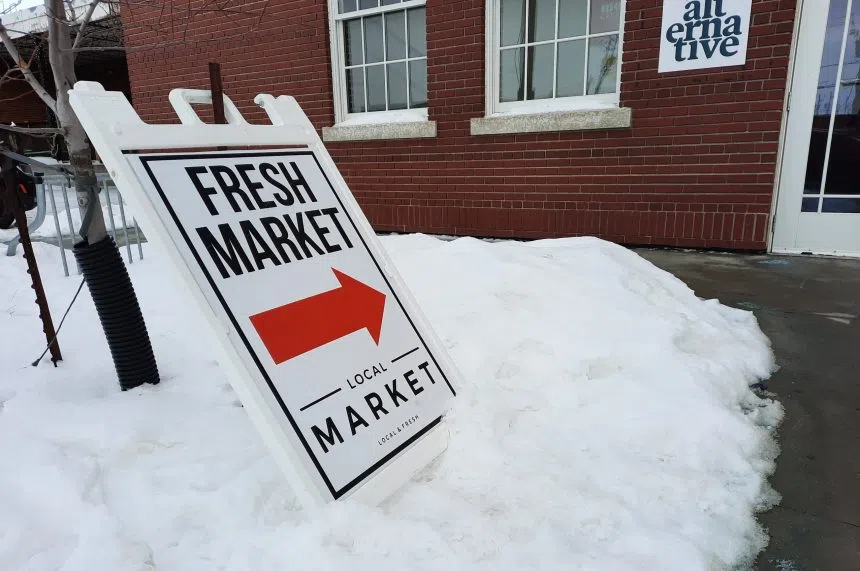Even though the places local markets get their products tend to be within a day’s drive, they’re still seeing effects from recent inflation and supply chain issues related to weather and international shortages.
Tim Shultz owns the Local and Fresh market in Regina. He said one of the benefits of working with local producers is they’ve had fewer challenges with supply chains than big-box grocery stores, but he said there still are some.
“We’ve had some issues just with some of our producers simply not being able to get products for packaging, or some of the ingredients for their products,” said Shultz.
That may slow down getting products, but Shultz said local producers are good for the most part.
“The nice thing about local producers is they’re quick to adapt. They’re able to get the product in a much more timely manner than the larger grocery stores,” he said.
And while the prices at big grocery stores seem to be going up all the time on some things, Shultz said it’s less of an issue for him.
“I think local production is maybe a little bit better off than imported products because we’re not having to deal with the logistical challenges that some of the imported products are having, which is driving prices up,” he said.
Shultz said he’s seeing some things rising, like the ingredients he need for his own products. He said there are little increases every time he gets shipments and that adds up.
At Carzan Local Market in Southey, owners Carter Bezant and Carmen Bussey are seeing prices go up a bit because of availability issues. Their producers have had trouble finding anything from canning jars to coloured sugar to sour cabbage.
“That goes into our sauerkraut, that goes into cabbage rolls, that goes into a bunch of other canning stuff that either they’ve increased their costs or they’ve said, ‘Screw it’ and they’ve stopped making those products,” said Bezant.
“Across the board, they couldn’t find some of those finicky things that they needed,” said Bussey.
And because of that, a lot of the producers who stock the store are raising their prices because it’s costing them more in the past couple months to get what they need.
“We’ve had a lot of producers, just literally, have to come back to us now and say, ‘Here’s our new price list,’ ” said Bussey.
The beef that’s sold in the store is produced by Bezant and Bussey, and while they’ve sold it for near the same price for years – and it was, in fact, often cheaper than big grocery chains — that’s now having to go up too.
“We have it butchered and even our butcher and the packaging there, they’ve had to bump up everything, so even the cost of our packaging has gone up,” explained Bussey.
If the producers are increasing their costs, the store has to increase its markup so it can make the same amount of money. Bezant said still other costs are going up for them as well.
“Our fuel’s costing us more, our electricity’s costing us more, our natural gas is costing us more, carbon tax is costing us everything, and that’s increasing our costs even more over top of the wholesale price increase that we’re seeing,” said Bezant.
Being able to get more product is on Bussey’s mind as well. She said they’ve been getting a lot of huge delivery orders coming in and while that’s great, she said it makes her wonder if their producers will be able to make what they need to keep their shelves from going bare.
For both Carzan Local Market and Local and Fresh, the owners think the supply chain issues and higher costs at the bigger stores could help.
Shultz said prices at big stores are meeting theirs.
“In a way, I think that’s a bit of a benefit. It’s kind of balancing things out a little bit,” said Shultz.
Bussey said they’ve always been pushing people to support more local, and she thinks the supply chain issues could be a good thing in a way.
“It’s going to drive people even more than COVID did to go, ‘Wait a second. Maybe we need to focus more on bringing things home, growing things here, so that our grocery stores aren’t bare,’ ” said Bussey.







